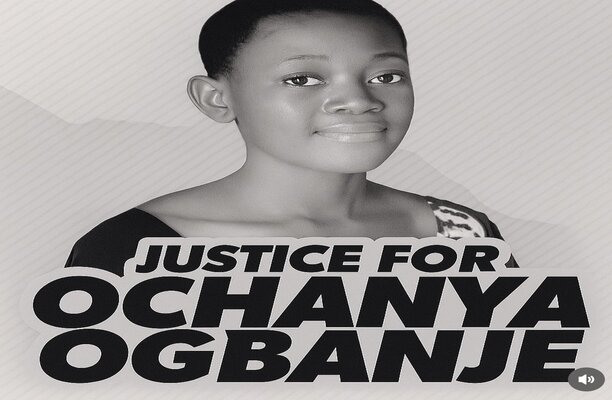By Ejiofor Toochi
Edited by Ezennia Uche
Elizabeth Ochanya Ogbanje was just five when she left her rural home to live with the Ogbujas in pursuit of an education. Over a period of five years, she was reportedly subjected to repeated sexual abuse by Mr Ogbuja and his son, Victor.
The abuse left her with Vesico-Vaginal Fistula (VVF) — an abnormal opening between the bladder and vaginal wall that causes continuous urine leakage. Ochanya was admitted to the Federal Medical Centre, Makurdi, where she spent two months before dying in October 2018 from complications linked to the prolonged abuse. Her guardian, Mrs Felicia Ochiga-Ogbuja, was arrested and detained for five months due to negligence.
However, the alleged perpetrators have not faced justice. Mr Ogbuja was acquitted of rape and manslaughter due to lack of evidence, while his son, Victor, remains at large. The Federal High Court stated that the case was weakened early on by conflicting medical reports and lack of forensic evidence.
Seven years after Ochanya’s death, justice remains elusive; a reminder of the system’s failure to protect its most vulnerable. Her case has sparked renewed public outrage, with many demanding justice. Senator Natasha Akpoti-Uduaghan and other popular personalities have added their voices to calls for the case to be reopened, urging authorities to ensure those responsible are held accountable.
One in four girls in Nigeria reports having experienced sexual abuse, UNICEF reports, yet less than five percent of survivors receive any form of support or intervention. Her tragic story underscores the urgent need to protect children from sexual violence. It also reinforces the recent move by the Nigerian Senate of the Criminal Code (Amendment) Bill, 2025, which prescribes life imprisonment for anyone convicted of defiling a minor and a 10-year minimum jail term for rape.
However, the true barrier to justice lies not in the law itself, but in the failure to enforce it effectively. There should be improved police training on handling sexual offence cases, the use of forensic evidence to strengthen prosecutions, and the establishment of special courts, modeled after the successful Lagos DSVA, across other states.
Now is the time for Nigerians to speak out, hold institutions accountable, and ensure that what happened to Ochanya is never repeated. Only through collective and urgent action can we ensure true justice for victims and lasting protection for our children.
READ ALSO: Nigeria Moves to End Child Defilement with Stronger Laws








